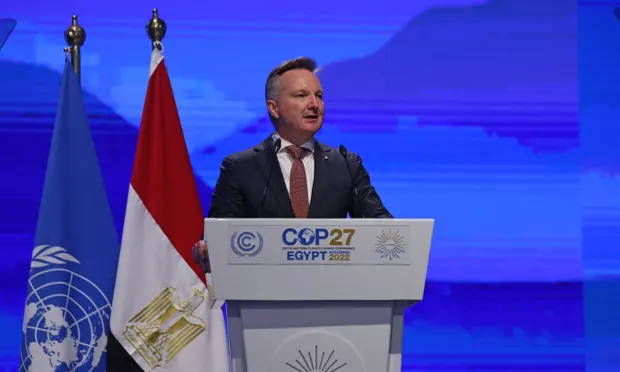The Albanese government has come under criticism at the UN climate talks in Egypt for its decision to resist a global push to end international public subsidies for fossil fuels, with the Labor party’s grassroots environment wing calling the decision “disappointing” and asking for an explanation.
According to reports, Australia refused to sign an agreement known as the statement on international public support for the clean energy transition partnership at a public event held at Cop27 in Sharm el-Sheikh on Tuesday.
The partnership, which was created in Glasgow last year, is backed by 36 countries and five public finance institutions that have committed to direct export credit support towards clean energy and away from “unabated fossil fuels.
Read also: Abuja: Environmental engineers advocate effective management of environment
Reacting, the national co-convener of the Labor Environment Action Network (Lean), Felicity Wade said that it made little sense for the government to not join the agreement on export finance given the climate change minister, Chris Bowen, had used a major speech at the conference to call out multilateral development banks, particularly the World Bank, for not doing enough to drive the clean energy transition in the developing world.
According to Wade, joining the partnership was an “important machinery of change” and joining would allow Australia to help build a consensus across the OECD on shifting public finance away from fossil fuels.
“It’s disappointing that the Australian government has decided against joining the clean energy transition partnership,” she was quoted as saying. “While it is great that Chris Bowen has called for reform of multilateral financial institutions to better deliver decarbonisation, it begs the question why Australia hasn’t signed up to ensuring our own international public investments are aligned with shifting from fossil fuels.”
Backed by Australian and international climate activists, Lean’s call comes as the Albanese government has signed up to other global commitments to cut methane emissions and end the loss of forests.
Recall that Bowen had on Tuesday, announced that Australia had also joined a global offshore wind alliance, which aims to build 380GW of offshore wind capacity by 2030.
It is believed that signing the clean energy partnership would probably require the government to rewrite rules that govern Export Finance Australia, which provides public support for overseas developments.
Although Australia is not a major player in export credit support for fossil fuels, providing $78m a year, the third lowest in the G20, campaigners said to believe that if the country joined it would build momentum for change within the OECD, increasing the level of support within the organisation to well beyond 50% of members.
Global public finance campaign co-manager at Oil Change International, Laurie van der Burg said that she understood Australia’s message had been “not necessarily a no, but a ‘not now.
Story was adapted from the Guardian.
